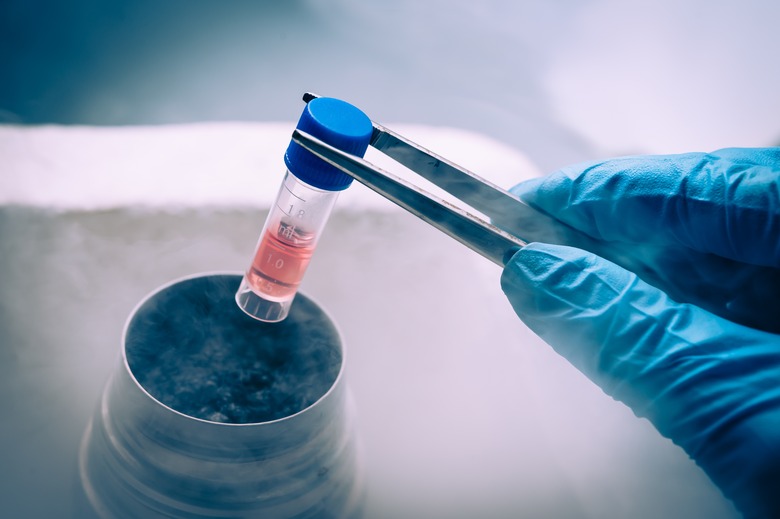Stem Cell Vaccines: The New Frontier In Cancer Therapy?
Cancer remains among the top serious diseases in the United States and around the world, and it affected an estimated 1,685,210 Americans in the U.S. last year, according to the National Cancer Institute.
Because cancer develops from genetic mutations – a natural process that affects our cells after repeated rounds of cell division – we'll likely never be able to stop cancer development. But advances in medicine make a huge difference, and the American Cancer Society reported in 2016 that cancer deaths were down a staggering 23 percent since 1991.
Among the most exciting developments in cancer research? Stem cell therapies that harness your body's natural immune functions to fight off cancer.
What Exactly Are Stem Cells, Anyway?
What Exactly Are Stem Cells, Anyway?
Stem cells are immature – undifferentiated – cells that have the ability to develop into mature, differentiated tissue. Different stems cells have different capacity to develop into different tissues. Totipotent stem cells, the "earliest" stem cells, can develop into any human tissue or into placental tissue, while pluripotent stem cells can develop into any human cell type. More differentiated cells – sometimes called adult stem cells – fall into two categories: multipotent cells, which can develop into two or more types of adult cells, and unipotent stem cells, which can develop into one type of human cell.
What’s the Connection Between Stem Cells and Cancer?
What's the Connection Between Stem Cells and Cancer?
Stem cells and cancer have a complicated relationship. Because stem cells have special attributes, like the ability to regenerate indefinitely without dying, more aggressive cancers tend to take on stem-like qualities. Masses of stem-like cancer cells tend to be able to grow even more aggressively than more mature-looking cancer cells, driving faster cancer development. Also, some cancer cells start expressing stem cell genes that allow them to pump chemicals, including chemotherapy drugs, out of the cell before the chemicals can cause damage, making them more resistant to cancer therapies.
How Stem Cells Might Revolutionize Cancer Treatment
How Stem Cells Might Revolutionize Cancer Treatment
While mutated stem-like cancer cells might spell trouble, healthy stem cells may be a powerful tool for treating cancer. That's because scientists can use stem cells to develop into mature tissues and help the body's own immune cells start attacking cancer growth from the inside.
The results so far are promising. Researchers at Stanford Medicine recently found that induced pluripotent stem cells, or IPS cells – a special type of stem cell generated from adult tissues – might work as a vaccine against tumor growth. When they injected mice with IPSs, they found that the mice's immune systems were primed to attack tumor cells. The results, published in the journal "Cell Stem Cell," indicate that IPS vaccinations might "train" the immune system to fight cancer growth like it would, say, the cold or the flu.
What Are the Implications for Cancer Treatment?
What Are the Implications for Cancer Treatment?
Stem cell cancer vaccines are still a new development in medicine, and scientists need to research whether the vaccines have similar effects in humans before we know for sure how well they work. But the use of stem cells to fight cancer offers several benefits. Because IPS cells are genetically matched to the patient, they represent a huge step forward in personalized medicine. And because the vaccine seems to work by training the immune system to attack cancer cells selectively, it could be a more pleasant alternative to chemotherapy, which damages many fast-dividing cells, leading to side effects that impact your skin, hair and blood cells. However, only time will tell if IPS vaccines are really the cancer cure we've been waiting for.
References
- University of Nebraska: Types of Stem Cell
- Cancer Biomarkers: Stem Cell-like Cancer Cells in Cancer Cell Lines
- ScienceDaily: Induced Pluripotent Stem Cells Could Serve as Cancer Vaccine
- National Cancer Institute: Cancer Statistics
- American Cancer Society: Cancer Statistics Report: Death Rate Down 23% in 21 Years
Cite This Article
MLA
Tremblay, Sylvie. "Stem Cell Vaccines: The New Frontier In Cancer Therapy?" sciencing.com, https://www.sciencing.com/stem-cell-vaccines-the-new-frontier-in-cancer-therapy-13710350/. 16 March 2018.
APA
Tremblay, Sylvie. (2018, March 16). Stem Cell Vaccines: The New Frontier In Cancer Therapy?. sciencing.com. Retrieved from https://www.sciencing.com/stem-cell-vaccines-the-new-frontier-in-cancer-therapy-13710350/
Chicago
Tremblay, Sylvie. Stem Cell Vaccines: The New Frontier In Cancer Therapy? last modified August 30, 2022. https://www.sciencing.com/stem-cell-vaccines-the-new-frontier-in-cancer-therapy-13710350/
